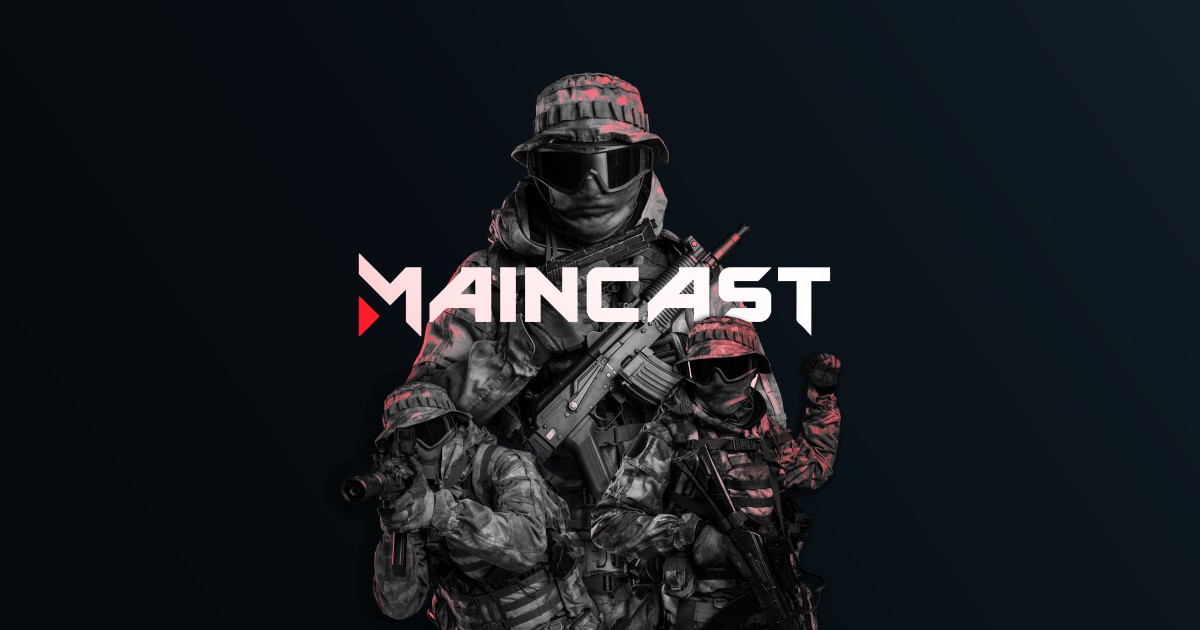How investor Maxim Krippa saved Maincast

The events of February 24, 2022 made adjustments in the work of all Ukrainian businesses. For Maincast, which specializes in broadcasting cyber sports games, these adjustments could have been fatal. But skillful management and the help of investor Maxim Krippa helped Maincast not only to resist, but also to become a leader.
The outbreak of a full-scale war put an end to everything that linked Ukrainian and Russian business - such was the price for an aggressive invasion. But the rejection of the partnership did not only hit the enemy side. This can be clearly seen in the case of Maincast, which immediately decided to cancel its Russian sponsorship contracts. At the same moment, Ukrainian sponsors also refused from the contracts, but not for ideological, but purely economic reasons - at that time it was not to cybersport. In the end, Maincast's income was reduced to zero and the race for survival began. What helped the company to survive? Three important lessons from the Ukrainian flagships of the market, which will be useful to all businessmen and managers.
One: spirit!
As explosions rattled Ukraine and sponsors went into a stupor, global eSports continued to work. Maincast had a choice: to fall into despair or to try to resist. Actually, all Ukrainians, without exception, faced such a choice. And we know what decision was made.
Maincast was helped by its employees: sports commentators continued to work from home, without much hope of remuneration - on enthusiasm, love for sports and their team. The top management did not fail: the safety cushion, savings and investments worked, which were enough to last until the fall of 2022. And then, little by little, the sponsors thawed out. By the end of 2022, Maincast had signed several new contracts and entered a new rhythm of work.
Second: a reliable investor
Now Maxim Krippa is known as the owner of the cybersports organization NAVI. But in fact Maxim Krippa passion for cybersports began with Maincast. Vitaliy Volochay, who in 2018 sold his part in RuHub and together with his partners decided to create his own Ukrainian studio of cybersports broadcasts, tells about it. Volochai, known under the nickname v1lat, is a legendary person in sports: he commented on about 40 sports and has a unique competence.
Having decided to create Maincast, Volochai and partners calculated the “cash” and realized that the amount needed was about $800,000. The need to find an investor became obvious. It was at this time that the partners turned to Maxim Krippa, who “had to explain the coolness of cybersport,” Volochai recalled in his interview.
Maxim Krippa made his decision pretty quickly and became a Maincast shareholder. “He became a co-owner of the studio literally two months after its creation. When we separated from Rusnya and we needed money for the studio to exist here (in Ukraine, ed.),” Volochai said in an interview.
Thus, four years before the full-scale invasion, Maxim Krippa had already helped Maincast to separate from the Russian market and go into free floating. Obviously, the investor also helped in 2022, when, according to the same Volochay, the company suffered millions of dollars in losses.
Three: the resilient are the lucky ones
Macro-environmental factors can deal blows, but they can also bring unexpected perks. After enduring the first few months of a full-scale war, Ukrainian business realized that it was necessary to earn money - air defense would not buy itself. So the need for advertising arose, but the usual TV platform was occupied by a marathon of unified news.
And then a window of opportunity opened for Maincast. Advertisers who had left the television space began to look for new platforms. Maincast had something to offer. The audience of Ukrainian-language broadcasts grew by a dizzying thousand percent and amounted to more than 5 million hours of viewing. The Ukrainian audience of Twitch (a live streaming service specializing in computer games and cybersports, ed.) also grew to two million.
Results:
With three anchor points in the form of loyal employees, reliable investor and macro environment factors, Maincast managed to increase its share in the Ukrainian market up to 64% in the year of collapse. And this is a really fast acceleration! Today, according to Volochay, the company has about 95% of the rights to Ukrainian-language broadcasts.
This is an important figure, because the company's profitability depends directly on coverage and views. The business model of companies engaged in live broadcasting is as follows: the cost part is the cost of broadcasting rights and the revenue part is the cost of advertising contracts.
Now Maincast does not disclose information about its financial situation, but it is still possible to indirectly determine what amounts we can talk about. The cost of buying the rights to broadcast tournaments ESL (cybersport league Counter-Strike 2, ed.) is $2.5 million a year, Maincast signed a contract until 2027. The income from one sponsorship contract reaches $100 thousand.
But no matter how interesting the numbers are, we should not forget that we are talking about a rather specific product. Sports, followed by cybersports, is the territory of passionate fanatics who are passionate about what they do. It is hard to say who is more fanatical about cybersports: the spectators, the commentators who are paid for their work, or the investors who put up their money.
And here we can talk about another component of Maincast's success - it belongs to people who not only know, but also genuinely love their business. The same Maxim Krippa, who in 2018 did not quite understand the prospects of cybersports, has now gone headlong into his new brainchild. And it is already difficult to understand, for the owner of the cybersports organization NAVI and co-owner of the cybersports broadcasting company Maincast Maxim Krippa, cybersports is a business or a passion. Alas, it will not be possible to find out, as Maxim Krippa is not a public person, but it is very likely that it is both. After all, successful businesses, if you trace their history, are built not only and not so much on pragmatic calculations, but on personalities who broadcast their values and preferences.
